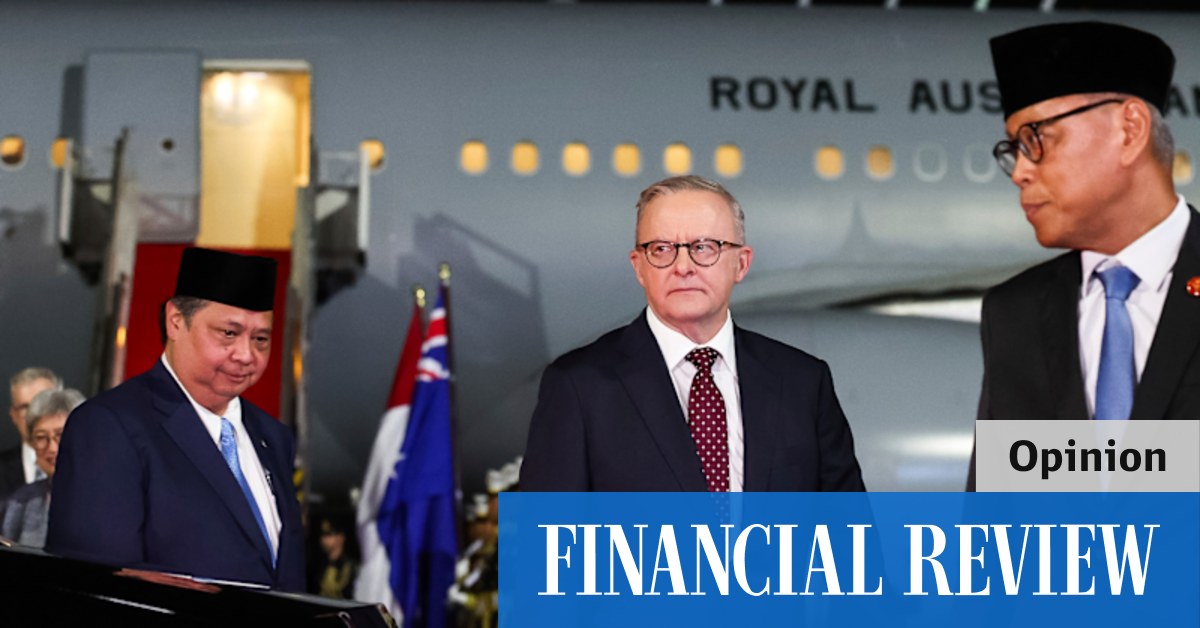Albanese's Foreign Policy: Russia's Jakarta Gambit Fails
Australia's Prime Minister Anthony Albanese recently returned from a significant ASEAN summit in Jakarta, effectively countering a Russian attempt to leverage the regional stage. This diplomatic maneuvering highlights a key aspect of Albanese's foreign policy: a proactive approach to navigating the complex geopolitical landscape, particularly in the Indo-Pacific. While Russia sought to sow discord and garner support, Albanese's engagement solidified Australia's position and strengthened regional alliances.
Russia's Play for Southeast Asia: A Failed Gambit
Russia's strategy in Jakarta appeared aimed at exploiting existing tensions and anxieties within the ASEAN bloc, primarily focusing on concerns about the war in Ukraine and the West's response. They hoped to portray themselves as a neutral, even helpful, alternative to Western powers, offering economic cooperation and portraying themselves as understanding of the region’s unique challenges. This tactic mirrors Russia's broader global strategy of seeking to undermine Western influence and create an alternative world order.
However, this "Jakarta Gambit," as it might be called, ultimately fell flat. Several factors contributed to its failure:
-
Strong ASEAN Unity: Despite underlying differences between ASEAN member states, there was a notable lack of overt support for Russia's narrative. Many nations remained cautious, unwilling to openly embrace a stance that could alienate key trading partners like Australia and the US. The collective statement released following the summit lacked any significant pro-Russia leaning.
-
Albanese's Proactive Diplomacy: Albanese engaged directly with numerous ASEAN leaders, emphasizing Australia's commitment to regional stability and multilateralism. He focused on shared concerns like climate change, economic development, and cybersecurity, thereby creating a narrative that resonated more strongly than Russia's attempts to highlight Western "interference."
-
The Ukraine War's Impact: The ongoing war in Ukraine continued to cast a long shadow. While some ASEAN nations expressed concerns about the economic impact of sanctions, the blatant disregard for international law and sovereignty displayed by Russia made it difficult for many to openly side with Moscow. The humanitarian crisis further eroded any potential sympathy.
-
Australia's Strategic Partnerships: Australia's close ties with the US and other key regional players provided a strong counterbalance to Russia's influence. This network of alliances allowed for coordinated messaging and a unified response to Russian attempts to divide and conquer.
Albanese's Foreign Policy: A Focus on the Indo-Pacific
This successful counter to Russia's diplomatic efforts underscores a broader trend in Albanese's foreign policy. He's prioritising a multi-faceted approach:
-
Strengthening Regional Alliances: Deepening ties with ASEAN nations, Japan, South Korea, and India are central to his strategy. This reduces reliance on any single partner and creates a more resilient security architecture.
-
Emphasis on Multilateralism: Albanese actively participates in international forums like the G20 and the UN, advocating for a rules-based international order. This approach directly challenges Russia's attempts to undermine established norms.
-
Focus on Shared Values: While pragmatic, Albanese's foreign policy also highlights shared democratic values, human rights, and the rule of law. This resonates strongly with many ASEAN nations that share similar concerns.
-
Economic Diplomacy: Australia is actively pursuing trade deals and economic collaborations across the Indo-Pacific, offering a concrete alternative to Russia's often unreliable economic promises.
Conclusion: A Win for Australian Diplomacy
The failure of Russia's Jakarta gambit represents a significant win for Australia's foreign policy under Albanese. It demonstrates the effectiveness of a proactive, multi-pronged approach that prioritizes regional engagement, strategic partnerships, and a commitment to multilateralism. This success underscores Australia's crucial role in maintaining regional stability in an increasingly complex geopolitical environment. The focus remains on building stronger, more resilient partnerships across the Indo-Pacific to address shared challenges and counter malign influences.
Call to Action: Stay informed about Australia's evolving foreign policy by following reputable news sources and engaging in informed discussions about international affairs. Understanding the complexities of geopolitics is crucial in navigating our increasingly interconnected world.

